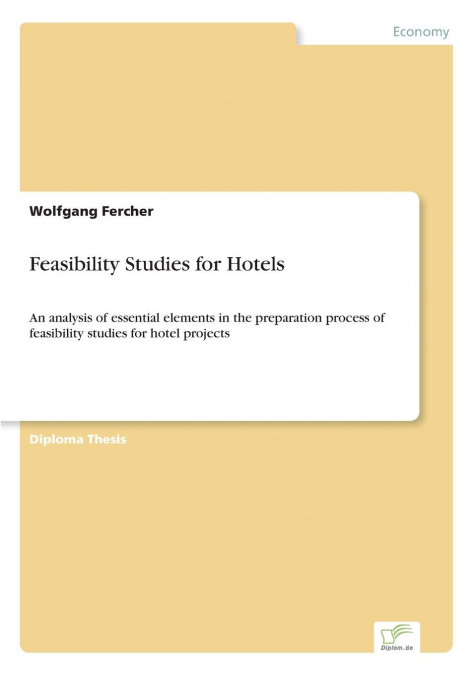
 Librería Perelló (Valencia)
Librería Perelló (Valencia)
 Librería Aciertas (Toledo)
Librería Aciertas (Toledo)
 El AlmaZen del Alquimista (Sevilla)
El AlmaZen del Alquimista (Sevilla)
 Librería Elías (Asturias)
Librería Elías (Asturias)
 Librería Kolima (Madrid)
Librería Kolima (Madrid)
 Donde los libros
Donde los libros
 Librería Proteo (Málaga)
Librería Proteo (Málaga)
Inhaltsangabe:Abstract: The intensity of competition in the tourism business, especially in the hotel industry has continuously grown during the last years. This development leads to the situation that capital investments in the hospitality industry are connected with ever increasing risks. In order to minimize these risk potentials, a detailed evaluation of the competitiveness and market compatibility of a planned project is an essential part of any project development process. Those analyses are covered in the course of a feasibility study which encloses all aspects that influence the success of a hotel project. In this context, a feasibility study serves as an information tool for project developers, investors, tenants, hotel operators and financiers in order to make decisions with regard to a specific hotel project. The preparation of a feasibility study requires the combination of a multitude of aspects, hence input from all participants in the project development process. Getting hold of information and the appropriate usage of this information is crucial in order to ensure the success of a study. The main objective of this diploma thesis is to identify the most important and current issues in feasibility evaluation of hotel projects. In practice, many studies are prepared following a fixed model, which has not been changed for years. However, the hospitality industry is highly competitive and dynamic, new additions to the existing supply therefore need to be analyzed very carefully. The focus of this diploma thesis is specifically put on the hospitality industry. This means that feasibility evaluation for other types of project development in the tourist industry is not subject to this study. The aim of the thesis is on the one hand to point out aspects that have to be taken into consideration in any study, and to give suggestions for improvements on the other hand. The author has laid down the following four hypotheses that serve as the main source for the